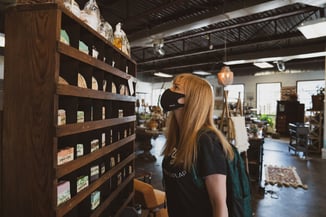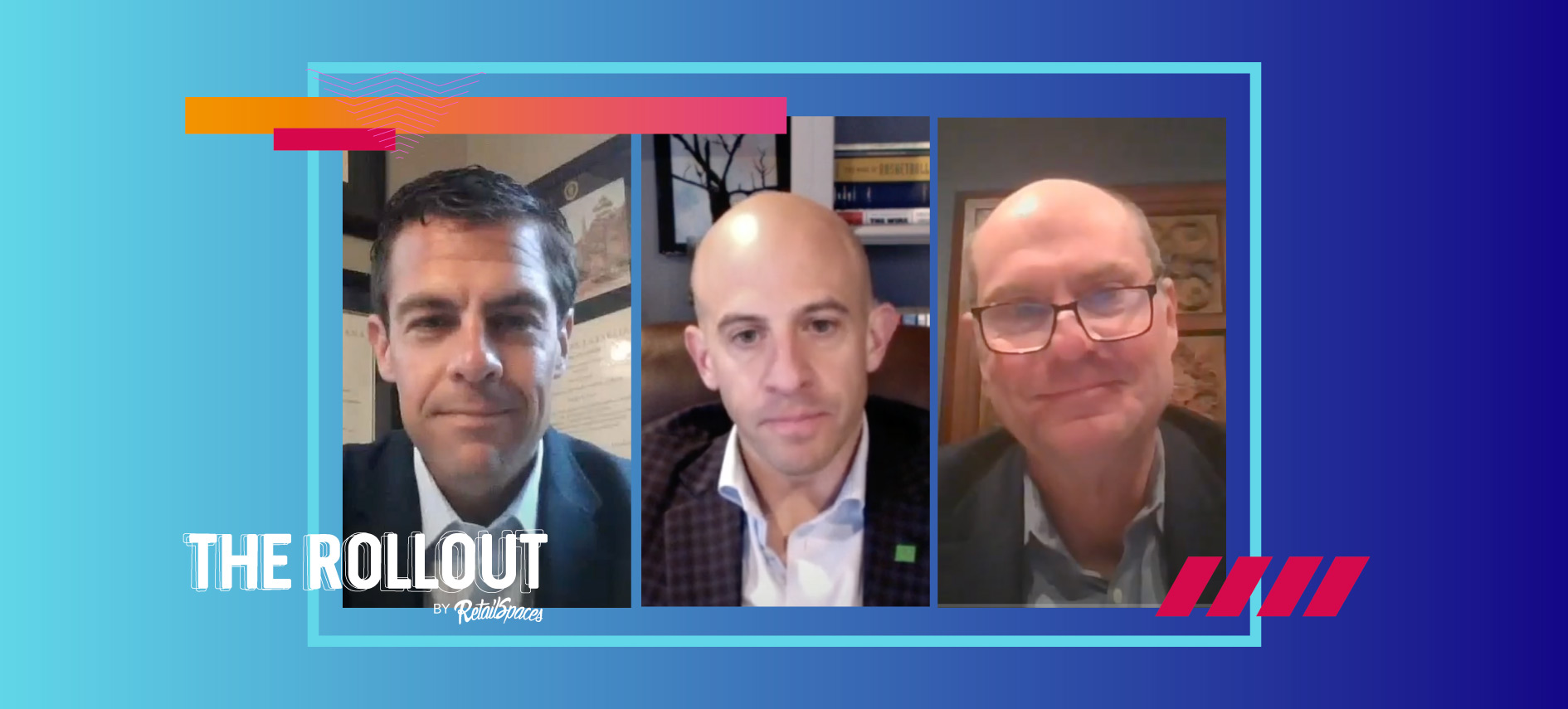Retail and banking industry leaders came together during a recent installment of The Rollout by RetailSpaces. The discussion featured Tom McGee, President and CEO of ICSC, Matt Boss, Head of Consumer Products at TD Bank, and Rob Almond, CEO of NEST.
Despite the pandemic, McGee, Boss and Almond provided an optimistic outlook for the retail industry due to retailers’ ability to be flexible, pent-up customer demand and consumer’s available liquidity.
“ICSC is forecasting a solid holiday season with 1.9% growth year-over-year,” McGee added. “This holiday season will be longer for a variety of reasons, including retailers encouraging shoppers to get out earlier.”
McGee admits the longevity of the pandemic and ongoing spikes of COVID-19 transmission rates continue to cause trepidation among retailers.
"There are risks," McGee said of the retail industry's future forecast. "But we are expecting growth."
The Importance of Integrated Facility Management
“NEST’s retail clients are telling us they have received more foot traffic than they expected during the pandemic,” said Almond. “People want to get back out and shop. That made us feel good, knowing that once people feel safe, customers are going to walk back into the stores.”
NEST manages 60,000 retail locations across the United States and Canada, providing an integrated solution that pairs financial acumen and business analytics with a consultative approach for both preventative and reactive maintenance.
While work came to a halt in mid-March as retailers were forced to close their doors, NEST worked to build solutions to get retailers back on their feet following their reopening.
"Our responsibility is to make sure our (retail partners) are doing the right things and providing the right level of service to folks so consumers feel safe walking back into stores," Almond added.
Collaboration is Key
Boss notes that many retailers need to take a step back to rethink their strategies for the future.
“How do we get things done faster and cheaper than historically,” he said. “How you put them out in the real-world matters.”
An integrated approach to facilities management can allow retailers to be more strategic with their operations cost and in-store experience.
"(Facility management) was looked at as an unnecessary expense," Almond said of a pre-pandemic thought process. "But we're critical to making sure consumers and employees feel safe. Facilities management services, as well as suppliers, should be looked at as part of the team.”
"They needed to hear what we were thinking and have us act as an extension of a team," he said. "It's not a one-time hit, you have to be innovative and pivot each week. You don't know what's going to happen each week."
With new spikes in COVID-19 and some jurisdictions shutting down businesses again, keeping a pulse on expenditures for maintenance, repairs and new projects is even more important.
Repairs and Maintenance
 |
“In a typical year, no matter how successful the holiday season, retailers want to make cuts in January,” Almond recalled. “The first two things to go are generally HVAC preventative maintenance and janitorial services. Yet, in the midst of a pandemic, that's simply not possible.”
Instead, Almond and NEST have worked with retailers to identify other areas that could be adjusted as part of a strategy that retains budgeted funds related to HVAC and janitorial services.
For instance, a smart approach may be to look at repairs, evaluate locations and see how they are performing. There have been many discussions related to shuttering underperforming stores when leases come up rather than investing in costly repairs.
"We want to make sure that over-performing stores are getting the TLC they need so they don't jeopardize the image of that location," Almond said.
Still, Almond warns that retailers must be cautious. If they bring cost savings down too much, the quality will be affected.
"You can't risk that if you are trying to get people to feel comfortable to walk back into your locations," he said.
Capital Improvements
NEST has also helped retailers prioritize capital improvement projects as they look to a future focused on convenience.
"You'll see a whole new approach to store reconfiguration," Almond said.
Almond noted that retailers have started to focus on reconfiguring parking lots for ease of curbside pickup options, as well as adding wider aisles, self-checkout lanes and touchless fixtures for customers who want to minimize contact.
"Those things will happen, and they will happen rapidly," Almond said. "It's important for retailers to have good partners that have access to large portions of these parts to roll this out quickly."
McGee agreed, noting that retailers are now focused on finding ways to utilize their online and physical channels together, a strategy that is now part of a long-term approach within the retail industry’s ever-changing services.
“The retail industry as a whole has been around for centuries and has gone through a lot and recreated itself,” he said. “I believe that will happen.”
Putting The Customer First
Regaining consumer confidence and getting customers back to shopping were reoccurring themes of the conversation.
"Those that feel comfortable have to know that everything from sanitation, social distancing, signage, that was done because the retailers care about the consumer," he said.
 |
With more consumers working from home, there’s more opportunity for quick visits to the store. That, Almond said, will require retailers to look at foot traffic differently.
“You have to drive people back into that location,” he said. “It’s all about the experience. Get people to want to come in, once you get them in, they can see you’re taking care of the facility from a sanitation and safety perspective, and they will continue to come back.”
There is a new level of awareness for facility management and Almond sees that continuing into the future.
"That was, quite frankly, a wake-up call for all of us," he said. "We all had to make sure we did the right thing to give consumers the right environment to walk into. A year from now, it's hard to know what things will look like."
McGee, Boss and Almond are focused on the positives moving into 2021 and using lessons learned during the pandemic to impact planning.
"Think of all the additional innovation we'll have," Almond said. "We're all in a position to collaborate, network, and talk about best practices. We're all here to get back to some form of normal."
“One thing we’ve seen (at TD Bank) is that loyalty really matters,” said Boss. “With specific retailers, a disproportionate amount of their business has come from what we consider loyal customers. We’ve seen some of that physical spend come back and there are reasons for optimism.”
Subscribe to receive updates on future installments of The Rollout.

Posted by
Physical Retail Reimagined.
RetailSpaces is a community for store development and design innovators.
March 29-31, 2026 | San Antonio, TX
Learn More!








Comments